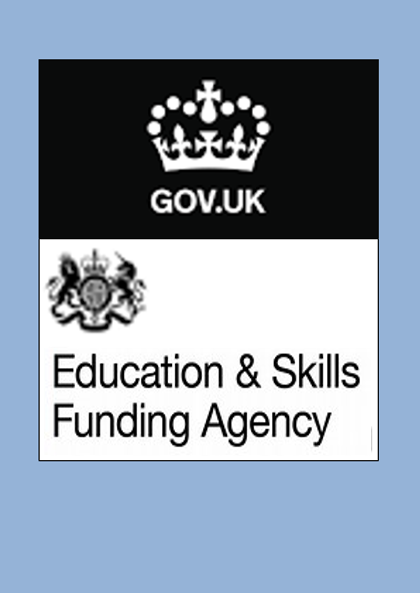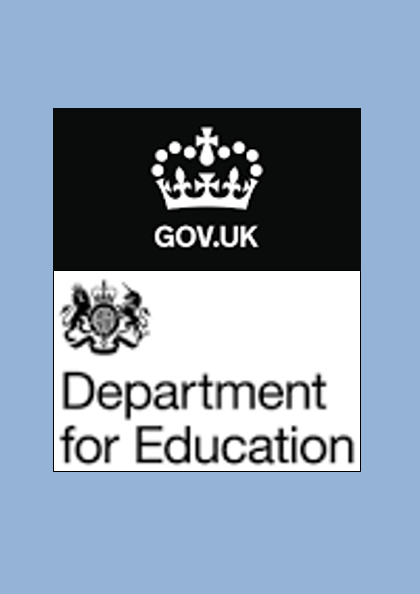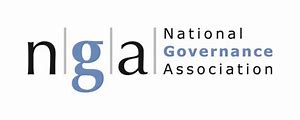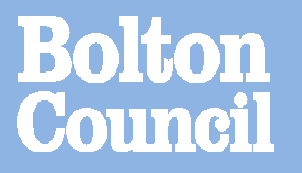Updates, News & Resources


Academy Trust Financial Management Good Practice Guides
The Education Skills and Funding Agency (ESFA) has provided guidance and information outlining good practice in academy trust financial management and assurance. These guides are useful for academy trustees, accounting officers, principals/executive leaders and chief financial officers (CFOs).
These guides do not replace or modify any requirements set out in the Academies Financial Handbook (AFH) and the Academies Accounts Direction (AAD).
Further information can be found via the www.gov.uk website by selecting the following LINK

Best Practice Guidance for School Complaints Procedures 2020
The Department for Education (DfE) has released an update of their best practice guidance for school complaints procedures 2020.
From the start of the autumn term, the Department expects schools to continue to respond to new and existing complaints. However, they do not expect schools to respond if a tier 4 local restriction is in place or school access is restricted due to localised cases of coronavirus (COVID-19). Schools should still engage with parents and pupils where possible.
If a school is required to hold a complaints panel, this may be conducted via alternative means such as video conferencing. Where this is not possible then a face-to-face meeting may take place; however, participants must adhere to social distancing guidance under the school’s risk assessment processes.
Further information can be found via the www.gov.uk website by selecting the following LINK
Governance Services – Autumn Term 2020
Following on from the summer term, governors and trustees will be aware that the autumn term will continue to operate differently in light of the Pandemic and associated government guidance.
This will obviously have an impact on governance moving forward and as such as John Ashworth, Governance Services Manager, wrote to all Chairs and Head Teachers/Principals to provide further guidance for school and academy trust boards and details of what can be expected from the LA Governance Services Clerking and Support and Training and Development Services for the term ahead.
A copy of this letter may be downloaded here. If you have any individual queries about the content of this letter, please contact your Clerk to the Board in the first instance.

Changes to the School Exclusion Process During the Pandemic
The Department for Education (DfE) has published further statutory guidance that describes the temporary changes to the school exclusion process due to coronavirus (COVID-19) pandemic. The changes apply to exclusions from, maintained schools, academies (including alternative provision academies but excluding 16 to 19 academies) and pupil referral units (PRUs).
The normal arrangements and procedures that must follow a decision to exclude on disciplinary grounds are described in the 2017 statutory guidance ‘Exclusion from maintained schools, academies and pupil referral units in England’. They are unchanged except as noted in this guidance.
The revised guidance provides additional guidance in respect of remote access meetings and associated timelines and applies to exclusions that take place between 1 June 2020 until 24 September 2020 and 25 September 2020 until 31 March 2021.
The DfE guidance may be viewed directly from the www.gov.uk website by following this LINK

Ofsted Visits from Autumn Term 2020
Ofsted has announced a programme of ‘visits’, not inspections, from the autumn term 2020, that will aim to reassure parents, ministers and the public about how schools and colleges are managing the return to full education of their pupils and students. Inspectors will use the visits to work collaboratively with leaders, listening and providing appropriate challenge.
The visits will not be graded. Instead, the outcomes of the discussions with school and college leaders will be published in a brief letter so that parents can understand what steps are being taken to help children back into full time education.
The visits will be piloted with volunteer schools and colleges from September. A return to full education inspection is planned for January 2021, but this date will be kept under review.
Further information may be downloaded directly from the www.gov.uk website by following this LINK

Keeping Children Safe in Education 2020
The DfE (Department for Education) has updated its Keeping Children Safe in Education guidance. The statutory guidance, which comes into effect from 1 September 2020, applies to all schools and academies and sets out the legal duties that must be followed to safeguard and promote the welfare of children and young people under the age of 18 in schools and colleges.
The key changes to this edition include:
- New requirements on mental health when it is also a safeguarding matter
- A reformatted part two of the guidance, which those responsible for governance should read
- A change to the definition of safeguarding
The Keeping Children Safe in Education statutory guidance may be downloaded directly from the www.gov.uk website by following this LINK

Academies Financial Handbook 2020
The ESFA (Education and Skills Funding Agency) has published the latest edition of the Academies Financial Handbook which will come into effect from 1 September 2020. This is for use by all academies and free schools. Updates to the new handbook include:
- Emphasising trustee responsibility to maintain the trust as a going concern
- Further details on the role of members and the need for members to remain informed on trust business
- Reinforcing that trusts must appoint a clerk to the trustee board
- An encouragement for larger trusts to consider accountancy qualifications for their Chief Financial Officer
- Encouragement for boards to take an integrated approach to curriculum and financial planning
- New details on board and committee responsibilities in terms of risk management
- A new requirement for trusts to publish on their trust wide website the number of employees whose pay and benefits exceed £100k
The updated handbook can be downloaded directly from the www.gov.uk website by following this LINK
Two Year Old Childcare Funding
We know many two years olds in Bolton are missing out on their funded place. Please encourage families who think they meet the criteria to have a check so they can start to benefit as soon as possible. Follow @BoltonFIS on Facebook to receive regular information for families about funded childcare and much more.

NGA Guidance (The role of governing boards in reducing the impact of COVID-19 school closures on disadvantaged pupils)
The National Governance Association (NGA) have published guidance for governing and trust boards about a strategic approach in looking at reducing the impact on disadvantaged pupils during the national emergency as it has been recognised that despite the best efforts of schools to provide continuity of education for all pupils during lockdown, there is no doubt that disadvantaged pupils and their families will have experienced greater challenges than most of their peers.
This handy information briefing, which sits alongside other useful briefing notes, may be downloaded directly from the NGA website by following this LINK

Phased Wider Re-opening of Schools in Bolton
Following a number of queries from governors about the arrangements for the phased re-opening of schools in Bolton, we thought it might be useful to provide further guidance about the arrangements that have taken place jointly by School Leaders and the Local Authority (LA). Much of this will have already been shared by your Head Teachers and Principals.
Throughout the current crisis, Bolton Local Authority have continued to work with Head Teacher Representatives to develop a Bolton approach to a common framework of principles which allows each school to apply them to their own individual circumstances, based on the communities they serve. The LA expected primary and early years settings to begin to invite children back to school from the 1st June 2020 and secondary and further educational settings from 15 June 2020; however, there is no expectation that all children in the specified year groups to be in school from these dates, but the aim is for schools to work towards this as soon as is practical and safe to do so.
The health and safety of children and staff is the highest priority. Decisions to bring more children into school will be based on health and safety risk assessment. The LA have provided a template to assist school leaders with this process and held virtual public health briefings to provide further guidance.
Decisions on the phased opening of schools should be made by Schools Leaders in consultation with their Governing and Trust Boards. In consulting their boards, leaders may do this through the Chair and communication with other governors or via a formal board meeting. Further guidance for voluntary aided schools and academies should be sought from the relevant body (Diocese) or trust. We are aware that both Salford RC and Manchester CE Diocese have provided further information and guidance to leaders and their Governing Boards.
The DfE, NGA and NAHT are clear in their guidance that it is the operational leader’s role in deciding the logistics of the wider opening of the school to pupils from 1 June and the strategic leaders role to oversee the necessary risk assessments. The consultation of parents and carers is also an operational role and we know that many school leaders have already done this in order to gauge their views about whether or not they will be sending their children back from 1 June, or later for secondary pupils.
The NGA have provided a ‘frequently asked questions’ section on their website which governors and trustees may find useful. They are clear that the “re-opening of a school is an operational decision which is taken by school leaders. Clearly any decision made by school leaders will need to take into account the DfE guidance, applying it to the school’s individual context. We expect school leaders to consult with their governing boards who have a role as employers (or in place of employers) and a duty of care to pupils.” This guidance can be found by following this LINK
Further operational guidance is available for School Leaders from the DfE by using the following Links:
DfE Planning advice for Primary Schools for Phased Return of Pupils (from 1 June)
DfE Planning advice for Secondary Schools for Phased Return of Pupils (from 15 June)

School Funding: Exceptional Costs Associated with Coronavirus (COVID-19)
The Department for Education has issued guidance which sets out the financial support that will be put in place to ensure schools can focus on the vital role they are playing during the current national emergency. While the department does not know how long the current situation will continue, this guidance covers support for schools up to the end of the 2019 to 2020 summer term. The funding is available for all state-funded mainstream and special schools, and alternative provision.
The guidance can be gained directly from the www.gov.uk website by following this LINK

DFE Guidance – Reducing Burdens on Educational and Care Settings
It is vital, at this time, that all educational and care settings, including local authorities, are able to focus on the impact of coronavirus (COVID-19), providing for the children and young people in their care and looking after the wellbeing of their staff.
To help reduce the burden on educational and care settings, the Department for Education (DfE) and its agencies have cancelled or paused all but the most essential data collections, services and requests from educational and care settings until the end of June 2020.
A list of data collection and services which will be cancelled, paused, deferred or continue can be gained directly from the www.gov.uk website by following this LINK
Maintained Governor Representation on the Bolton Schools Forum – Election 2020 (extended nomination period)
The Schools Forum is a key consultation group, especially in all aspects of resourcing schools in relation to school budgets. There are 31 members of the Schools Forum, 23 members are head teachers and governors of maintained schools and academies.
Of the representatives there are currently 2 maintained primary positions available for election. Unfortunately no nominations were received within the last nomination period in spring 2020. We have therefore extended the closing date for nominations until Friday 17 July 2020.
The term of office is 4 years to commence from 1 September 2020 (This start date may be delayed if a ballot is required). Maintained Primary School Governors are invited to be nominated to fill the vacant positions. Those governors interested in standing for the positions should complete the attached form and seek email approval in place of the usual countersignature by the Chair of the Governing Body they are wishing to be nominated by.
The form should be submitted the LA Schools Finance Team by no later than Friday 17 July 2020 at 4.00 pm. Following receipt of all nominations by the stated closing date and time, if the same number of nominations are received for the positions available, those governors will be duly elected. If, however there are more nominations than the positions available, an election will be held. Further guidance is enclosed with the nomination form which may be downloaded here.

Bolton Governance Services – Support for the Summer Term
The Governance Services Team recognises that schools and academies are not operating in the usual way during the current national emergency. The Service continues to be available to provide support, advice and guidance during this difficult time.
As a service we will be assisting our boards and providing guidance on undertaking virtual meetings wherever possible. These will be fully supported by the clerking service with the expectations that all Governing and Trust Boards will meet. We will provide a model draft agenda which will cover the necessary items for boards to consider as part of the crisis response and to meet statutory duties. Your Clerk to the Board will contact you soon to discuss this and establish dates, if they have not already done so. Guidance on virtual meetings can be found on this website by following this LINK
During social distancing, isolation and shielding, we felt it important to provide some normality in services and we will therefore offer a suite of virtual training and development for governors and trustees to access. This will replace some of our planned face-to-face sessions this term.
The NGA Learning Link, brokered through our Training and Development Service Level Agreement, remains available for access. Further information on e-learning can be found on this website by following this LINK
If you have any questions or concerns, please speak to your Clerk to the Board in the first instance or contact the service on 01204 338601 / 338603

Statement from Bolton Faith Leaders’ Forum
Bolton Faith Leaders’ Forum has issued a joint statement thanking everyone who is working so hard to get us through this testing time. “As faith communities of Bolton we are united in our commitment to working for the well-being of all affected by COVID-19,” they said.
“We thank and support those who are working so hard to enable us to get through this testing time: NHS and care workers; emergency response services; providers of food, medicine and other vital goods; those in all levels of government and officials, and Bolton Council in particular, and the many others who may not be classed as ‘essential workers’ but make all the difference to our daily lives.
“People of all faiths and none through the voluntary and community sector and neighbourhood groups are working together to respond to the many needs that have arisen.”
The full statement can be gained via the Bolton Council website by following this LINK

DfE Governance Update – March 2020
The DfE (Department for Education), as part of their regular governance update, have provided additional guidance to assist governors, trustees and school leaders in their governance roles. You may have already received this update if you are subscribed to the DfE GIAS (Get Information About Your Schools) system.
This update reiterates the key messages and guidance published by the department about the Government’s response with Coronavirus (COVD-19), especially around school closures, and seeks to provide some clarity on specific issues that will be at the forefront of governors’ minds. Department officials are monitoring the situation closely and will provide further information as necessary. The guidance is particularly useful to inform the Department’s expectations of School and Academy governance during the current national emergency.
The guidance can be gained directly from the www.gov.uk website by following this LINK

Keeping Children Safe in Schools – Supporting Current Arrangements
The DfE (Department for Education) has issued revised safeguarding guidance for schools and colleges as they recognise that the way they are currently operating in response to Coronavirus (COVID-19) is fundamentally different to business as usual, however, a number of important safeguarding principles remain the same.
KCSIE (Keeping Children Safe in Education) is statutory safeguarding guidance that schools and colleges should continue to have regard to as per their legislative duty and/or funding agreement requirements.
Whilst acknowledging the pressure that schools and colleges are under, the Department for Education had advised that it remains essential that as far as possible they continue to be safe places for children. The revised guidance supports governing boards, proprietors, senior leadership teams and designated safeguarding leads (DSLs) so they can continue to have appropriate regard to KCSIE and keep their children safe. It suggests where schools and colleges might consider safeguarding policy and process differently when compared to business as usual.
The guidance can be gained directly from the www.gov.uk website by following this LINK

Coronavirus (COVID-19) – Guidance for schools, colleges and local authorities on maintaining educational provision
As part of the country’s response to Coronavirus (COVID-19), the government has asked parents to keep their children at home, wherever possible, and asked schools to remain open only for those children who absolutely need to attend.
It is important to underline that schools, colleges and other educational establishments remain safe places for children. But the fewer children making the journey to school, and the fewer children in educational settings, the lower the risk that the virus can spread and infect vulnerable individuals in wider society.
Schools are therefore being asked to continue to provide care for a limited number of children – children who are vulnerable and children whose parents are critical to the COVID-19 response and cannot be safely cared for at home.
The new guidance may be downloaded via the www.gov.uk website via the following LINK
General advice, information and guidance on Coronavirus (COVID-19) may be gained by visiting the Bolton Council website using the following LINK

Coronavirus (COVID-19) – NGA Guidance for Governing, Trust Boards and School Leaders
Coronavirus (COVID-19) was declared a pandemic by the World Health Organisation on the 11 March 2020 and is now a major concern for school leaders monitoring and dealing with the risks and implications in an evolving situation.
The NGA (National Governance Association) has published an information sheet for governing boards that re-enforces the official advice given to education settings about how they should respond to the threat of the Coronavirus (COVID-19). The information sheet explains that the school’s response is an operational matter for school leaders to manage. The most appropriate way for governing boards to support their school leaders is to allow them to manage the response without the involvement of the board unless it is requested. School leaders themselves are guided by public health advice. They should maintain levels of communication with stakeholders, most notably parents but also the governing board.
The NGA guidance may be downloaded by visiting the NGA website directly using the following LINK
The most up to date guidance on Coronavirus (COVID-19) can be gained by visiting the Public Health England / Department for Education Website using the following LINK
General advice is available via the Bolton Council website using the following LINK

Integrated Curriculum and Financial Planning (ICFP)
Integrated curriculum and financial planning (ICFP) is a management process that helps schools and academies plan the best curriculum for their pupils with the funding they have available. It can be used at any phase or type of school.
ICFP involves measuring your current curriculum, staffing structure and finances, and using the data to create a 3 to 5 year plan. Linking curriculum and financial planning can help schools:
- Achieve educational success and financial sustainability
- Deliver the best curriculum your school can afford that meets the needs of your pupils
- Maximise the financial efficiency of your school
- Maximise the curriculum efficiency of your school
- Manage unexpected costs, challenges or opportunities
- Assess risks
- Decide what money you need to keep in reserve
Further information about Integrated curriculum and financial planning can be gained via the www.gov.uk website using the following LINK




